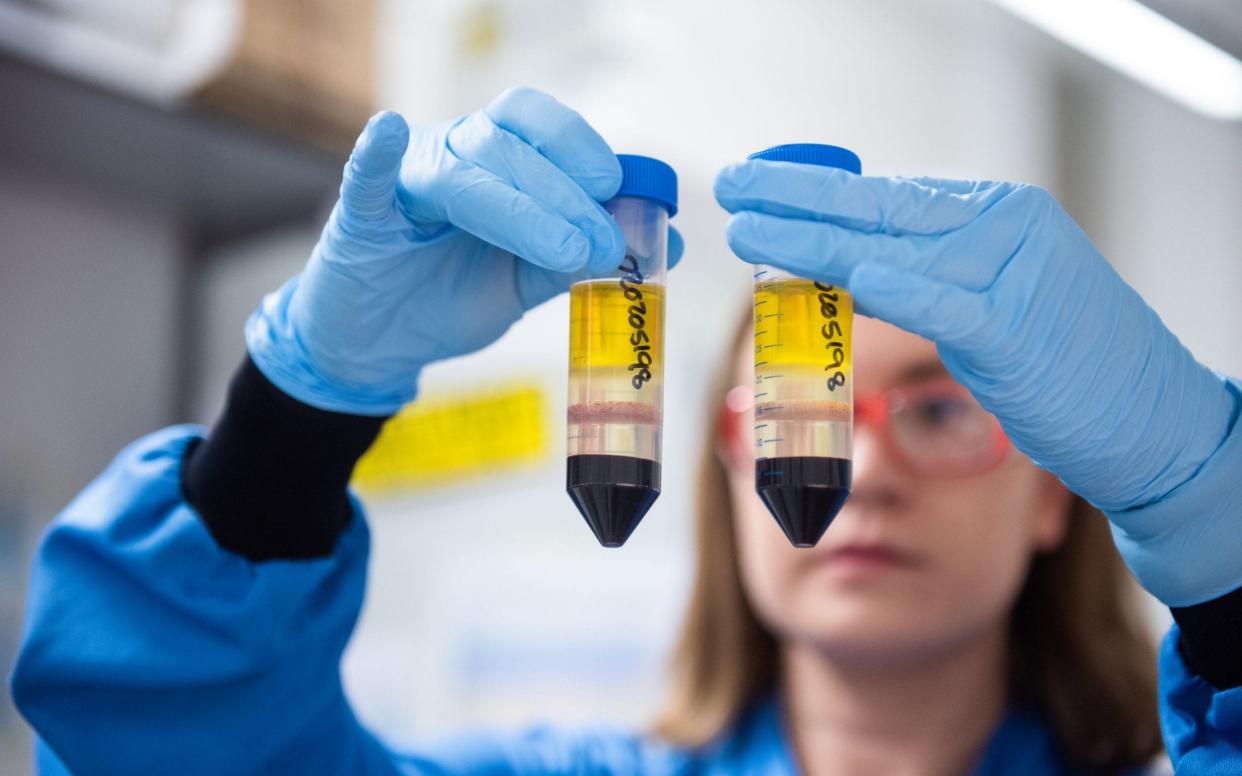Oxford set to tell vaccine trial volunteers if they got a placebo once they are offered jabs by NHS


Volunteers in the Oxford-AstraZeneca vaccine trial are to be “unblinded” so they can receive potentially life saving Covid vaccinations quickly, the Telegraph has learnt.
Tens of thousands of people around the world who have participated in phase three trials of Covid vaccines remain unsure as to whether they received a placebo or the real thing.
It has posed a difficult ethical dilemma now the first vaccine has been approved for use, with scientists keen for trials to continue to collect added data, but participants worried that they may be forgoing protection which will soon be available to all.
At least one death has been reported among the placebo group of the Moderna phase three vaccine trial in the US, and others will inevitably follow in the months ahead.
While deaths were unavoidable at first, now that vaccines have been proved efficacious they are not.
Participants in the Oxford-AstraZeneca trial have been told their status will be “unblinded” once they are offered an approved coronavirus vaccine by the NHS, ensuring that they will not be left unprotected for long.
“They have said that essentially, once the vaccine comes out into mass circulation, they will unblind everyone,” said Lottie Gross, a 29 year old volunteer.
The Oxford team confirmed the move yesterday, saying that it was in talks with regulators “to align with a national position on unblinding in Covid-19 trials.”
“Without our trial volunteers, we could not have managed to get the great results we have, and it is totally appropriate for those people on the Oxford trial eligible for the first vaccinations to be able to receive them quickly,” a spokesperson said.
The issue highlights the tension between the continued need for trial data and the safety of study participants.
“Regulators will try to encourage trials to continue as long as possible, as clearly it's so important to know how long protection lasts,” said Stephen Evans, a professor of Pharmacoepidemiology at the London School of Hygiene and Tropical Medicine. “If they end too soon we could lose a wealth of data.”
But he added that unblinding trial data at this stage is standard practice.
“When a vaccine becomes available that is demonstrably effective, someone in a trial can decide to withdraw. Usually they are asked to contact the investigator, who will explain that the consequences are that they may lose information,” he said.
“If they still want to leave, then they will unblind them. They will go and look at the code to look up the records, which are fairly well hidden from investigators.”
He said that before Christmas, only a “handful of health and social care workers and some over 70s” will face the dilemma. But numbers will grow in the new year as more people have access to jabs via the NHS.
Meanwhile a Pfizer spokeswoman said the company “would have an ethical responsibility to inform all study participants about the availability of an emergency authorised vaccine by the Food and Drug Administration [FDA].”
The Pfizer vaccine was approved by the UK regulator, the MHRA, this week, but there have been no UK trials for this jab.
There have been studies in the United States, where the regulator, the FDA, is still reviewing the vaccine. It is understood that FDA would make a recommendation on when to unblind the trial - though they could remove the placebo arm and continue to monitor those who receive the vaccine.
Pfizer has reportedly also proposed to regulators that any volunteers who received the placebo should be offered the real vaccine when the study concludes.
Many, however, remain adamant that the benefits of continuing control trials far outweigh the risks.
On Wednesday 18 members of a World Health Organization panel, called the ad hoc expert group on the next steps for Covid-19 vaccine evaluation, made the case for placebo-control groups in the New England Journal of Medicine.
“After relatively short follow-up in phase 3 trials, even when vaccine efficacy appears to be high, reliable information will still be needed on longer-term safety and duration of protection,” the team wrote.
“[The] opportunity to obtain reliable evidence about longer-term effects would be destroyed by early unblinding and immediate vaccination of participants assigned to placebo.”
As well as looming questions about the duration of immunity, there are concerns that vaccine developers may never generate enough data to receive full approval from regulators if they unblind their trials too soon.
Experts told the Telegraph that, ultimately, the decision to stay or leave will come down to individual circumstances.
Ms Gross, for instance, said she would remain in the trial until it ended because she is at low risk of severe disease. This equation would change only if an unknown vaccination status prevented her from certain activities - including travelling or going to the pub with friends.
“The issue will be around at risk groups, who if they don't get the vaccine have a very high chance of dying and have been offered a vaccine elsewhere,” said Paul Hunter, professor of medicine at the University of East Anglia.
He added that it concerns about missing out on vaccines could “make it more difficult to enrol for future vaccines in phase three trials” - though Prof Evans suggested trials may compare new vaccines with already approved jabs, rather than using a placebo.
Protect yourself and your family by learning more about Global Health Security

 Yahoo News
Yahoo News 
